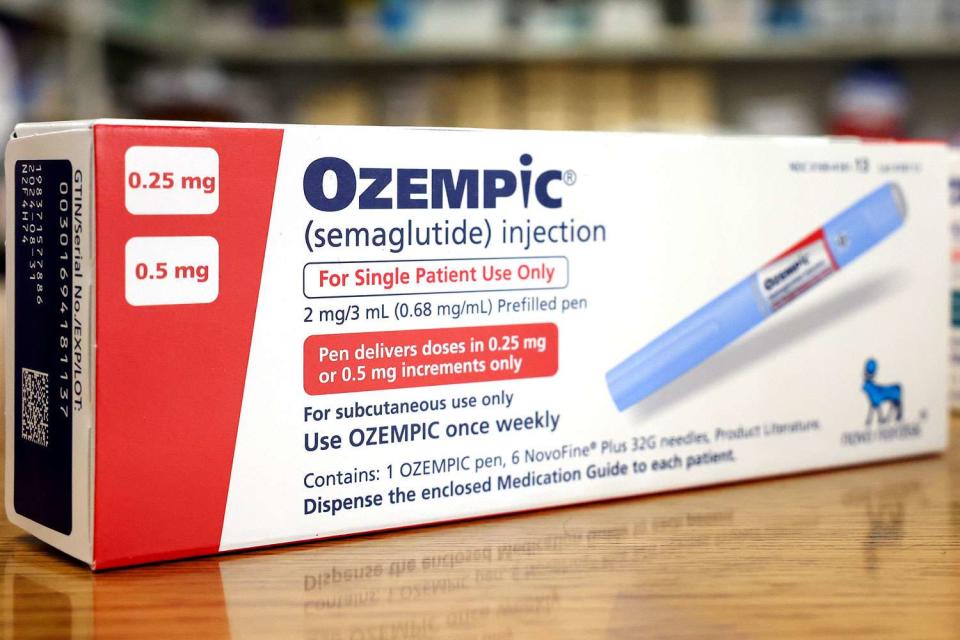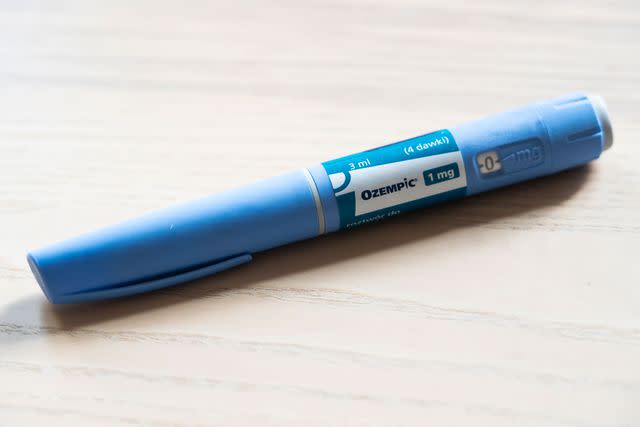California Man on Ozempic Dies by Suicide: 'I Know He Didn’t Want to Die’
The family of a California man wants a warning label added to the medication to warn of the potential mental health risks

Mario Tama/Getty
OzempicA California man who was taking Ozempic to manage his type 2 diabetes has died by suicide — and his family says the drug is to blame.
“I know he didn’t want to die,” his fiancée, Carolyn Hasty, told NBC News. She said that Anthony — whose name was not disclosed to protect his children — exhibited a personality change as soon as he started taking the drug.
“He’s usually very charismatic, talking and joking. He’s a pretty outgoing guy. But he was fairly quiet,” Hasty said.
Anthony started taking Ozempic in February. On May 14, he died by suicide at his Indiana home.
“I think the Ozempic was putting these suicidal thoughts in his mind,” his sister, Merlene Hall, told NBC News.
“The totality of available evidence — which includes clinical studies and data from real world-use — does not suggest an increased risk of suicide or self-injurious behavior with Ozempic,” the medication's manufacturer, Novo Nordisk, said in a statement to NBC News.
“In completed Ozempic clinical studies, no events of suicide or self-injury were reported in patients treated with Ozempic," the statement continued.

Jaap Arriens/NurPhoto via Getty
Ozempic.Never miss a story — sign up for PEOPLE's free daily newsletter to stay up-to-date on the best of what PEOPLE has to offer, from juicy celebrity news to compelling human interest stories.
This isn’t the first time Ozempic and similar drugs — which are used for weight loss as well as diabetes management — have been linked to suicide.
In July, the European Medicines Agency (EMA) expanded its investigation of the manufacturer, Danish firm Novo Nordisk, after "150 reports of possible cases of self-injury and suicidal thoughts," the EMA said in a statement.
The medication is approved by the FDA for use in the U.S., and taken by injection in the thigh, stomach or arm, for people with type 2 diabetes. And Saxenda and Wegovy have warnings to "monitor for depression or suicidal thoughts," with Wegovy mentioning to “avoid in patients with a history of suicidal attempts or active suicidal ideation.”
Related: Chelsea Handler 'Didn't Know' She Was on Ozempic, Says Her Doctor 'Just Hands It Out to Anybody'
Ozempic does not have a similar warning on its prescribing information — even though as Verywell Health points out, Ozempic and Wegovy are the same medication, just sold under different names. Another key difference: Wegovy is approved for weight loss, while Ozempic is only approved for diabetes management and for those at risk of cardiovascular disease.
Anthony had struggled with anxiety and depression in the past, and Hall said her brother should have never been prescribed Ozempic, since he wasn’t warned of the potential impact on his mental health.
“He really never should have been started on this,” Hall said. “If the health care providers were informed about this properly, my brother would not have been a candidate for it, or he would have been watched closer.”
Related: Stars Who've Spoken About Ozempic — and What They've Said
Hasty told NBC News that Anthony had had suicidal thoughts in the past. “I came home and he was sitting in the kitchen and he said, ‘Help me, babe, you got to help me. I just feel like killing myself.’”
“I’m not trying to say that I believe this medicine is a bad medicine overall. I think that it probably offers a lot of benefits to a lot of people,” Hasty told NBC News.
“But I believe that there is a subpopulation out there, a portion of this population that they’re giving it to, that has to be more highly monitored and decide whether or not it’s a good drug for them.”
For more People news, make sure to sign up for our newsletter!
Read the original article on People.


